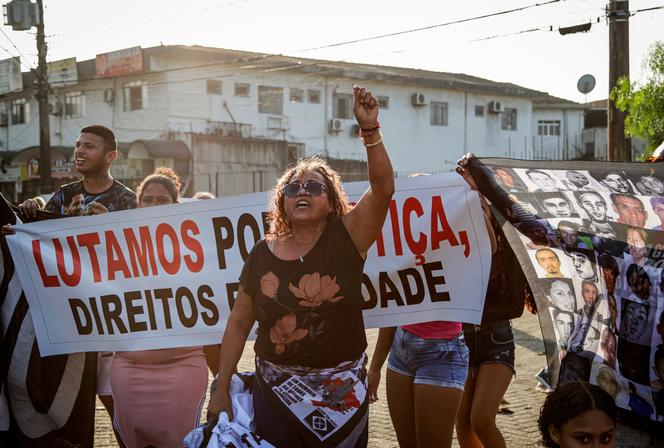


"Stop killing us! The people want to live!" chanted nearly 200 people gathered on Wednesday, August 2 in the town of Guaruja, on the coast of Sao Paulo state, where a deadly police operation has been underway since July 28. In the wake of the murder of policeman Patrick Bastos Reis while on patrol, the Sao Paulo State Police deployed 600 officers to the area, leading to a police operation which has left 16 people dead. It's a "revenge operation," said local residents.
Over the past week, at least 45 people have been killed in various police raids across Brazil. On the day of the Guaruja operation, the northeastern state of Bahia launched a simultaneous law enforcement action against drug trafficking in three cities, killing 19 people. Five days later, a police raid against criminal factions in the Penha complex, a group of favelas in Rio de Janeiro, left 10 dead. Schools in the area were forced to close, leaving 3,000 students without classes.
"There was an immediate reaction [from the police] which seems disproportionate to the crime committed," acknowledged Justice Minister Flavio Dino when asked by journalists, as he left the Palacio do Planalto, about the operation in Guaruja on July 31. In Sao Paulo, the police ombudsman's office has received multiple complaints of homicide, torture and threats. "The important thing is to ensure that investigations [into each death] take place," said Dino.
However, the minister's statements are not enough to reassure human rights activists. "We are very worried about these [police] operations," said David Marques, coordinator of the Brazilian Public Security Forum, an NGO which collects statistics on police violence. "We have noticed a systematic use of excessive force by certain police forces," he added. According to the NGO's statistics, over 6,429 people were killed by the police in Brazil in 2022, an average of 17 a day.
On May 25, 2022, Brazil was especially moved by one such case: Genivaldo de Jesus Santos, a 38-year-old black man suffering from schizophrenia, suffocated after he was placed in the trunk of a car by the police, into which a tear-gas grenade had been thrown. A video showing him in agony went viral on social media, sparking protests against police violence and racism.
"[We are] in a country where people are afraid of the police," admitted Luiz Inacio Lula da Silva on March 15, a few weeks after his inauguration as president of the country, as he announced the resumption of a national program for public safety and citizenship, created during his second presidential term (2007-2011). It was abandoned under the government of Jair Bolsonaro, who was president from 2019 to 2022. It aims to prevent violence by implementing social policies in cities with the highest homicide rates. "Society doesn't need more police, it needs more state," said Lula, a former metal worker.
You have 47.01% of this article left to read. The rest is for subscribers only.
